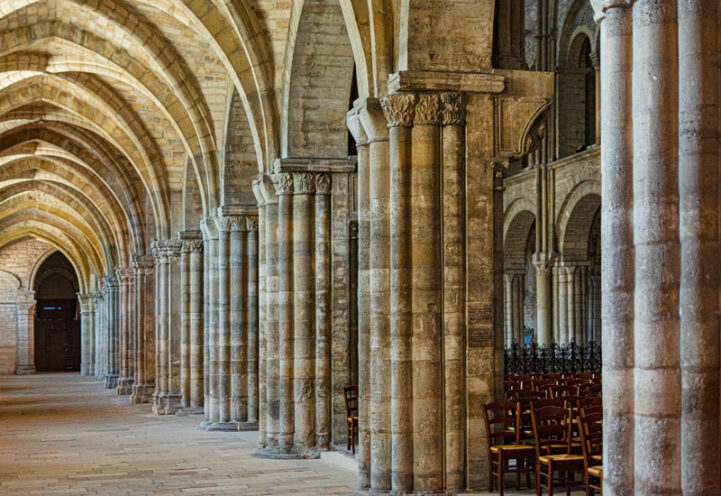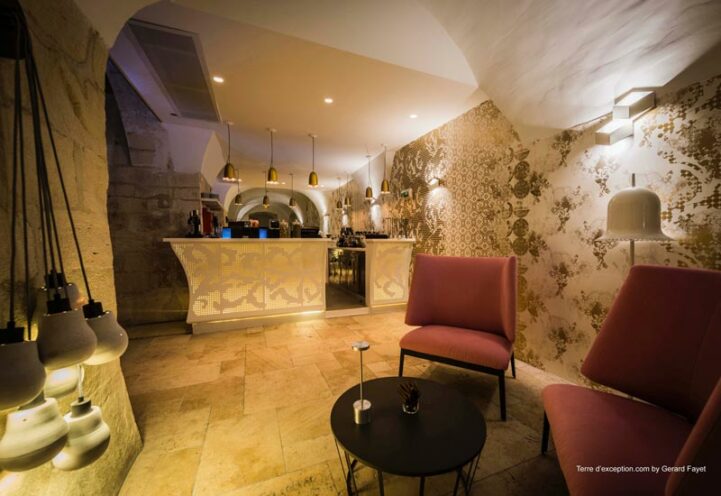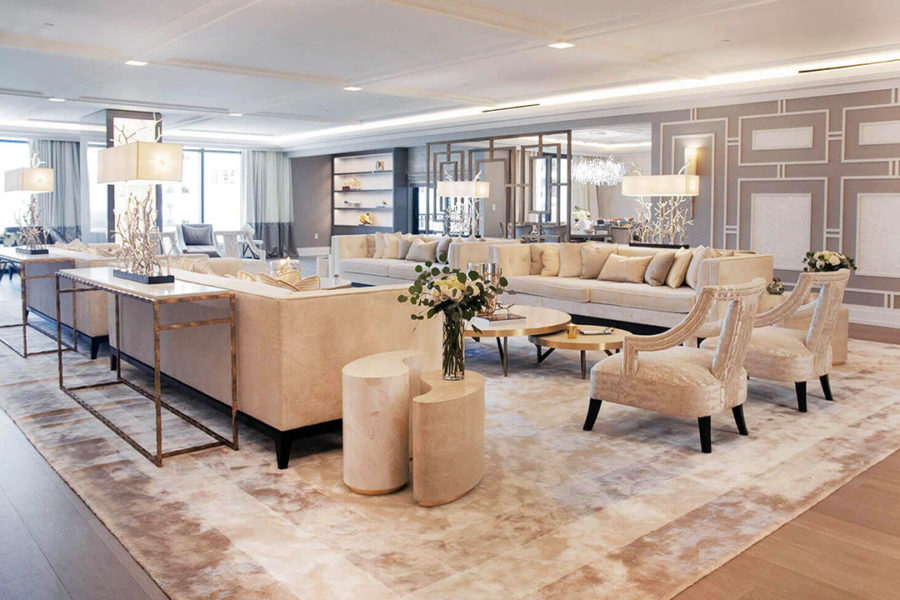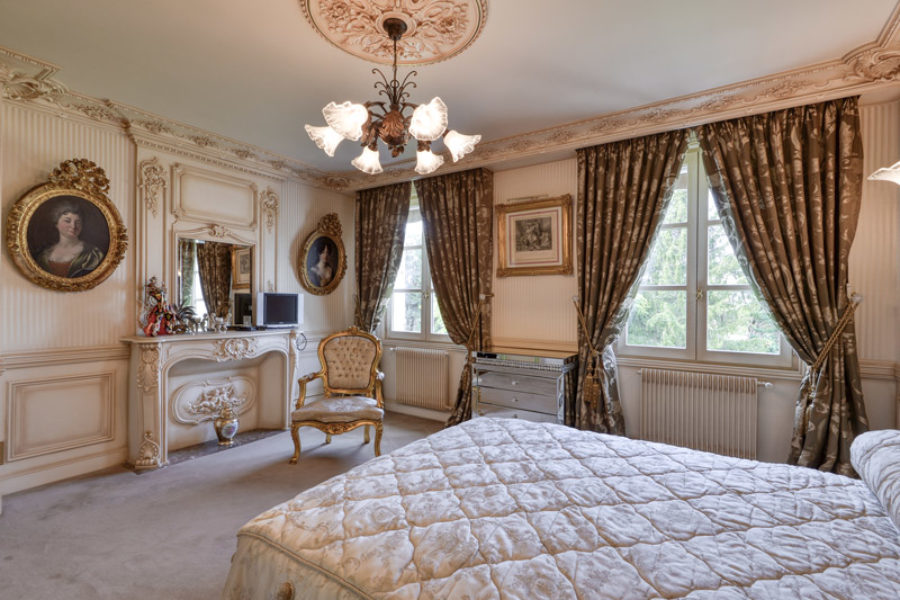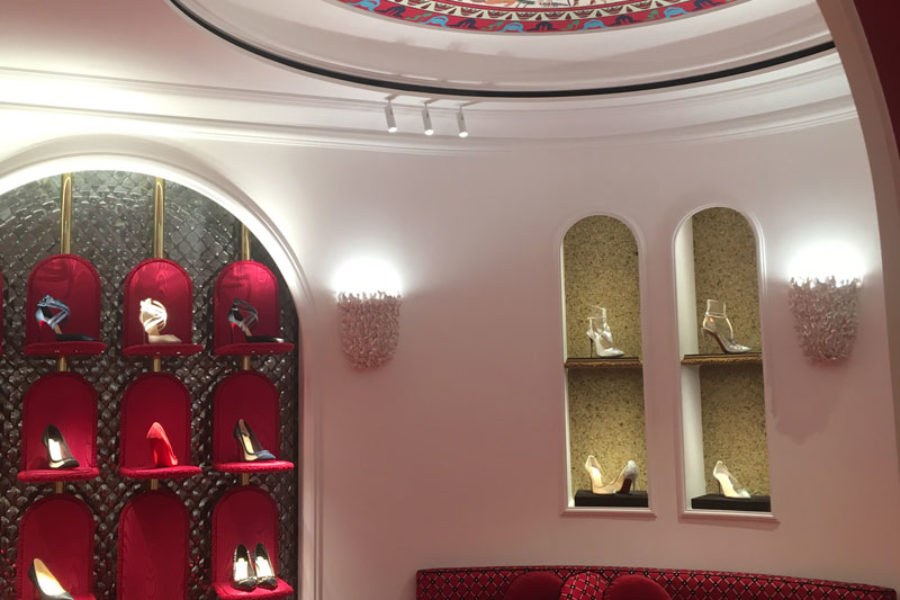Choosing decorative moldings for ceilings and walls
A symbol of wealth and nobility, ornamentation is lovely in the interior of a place. Although primarily used to bedeck ceilings and adorn hanging lights, mouldings can also be used to brighten up walls. Installed on beadboard, wainscoting, frames and corner décor, they interrupt the plane of a wall, adding volume and texture with their classical or contemporary motifs.
Which material should you choose?
The choice of moulding material often depends on the level of detail of the ornamentation you want to create. The great malleability of fibrous plaster makes it an ideal choice for making bespoke mouldings that push the limits of creativity. In addition, fibrous plaster offers multiple possibilities for creating imitations of materials and textures that are astonishingly realistic.
Faux marble, ivory, bronze, granite and more: all these noble materials express refinement in interior décor and design projects. Our ornamental plasterers can also restore old decorations by taking moulds of existing mouldings.
A style for each moulding
Each architectural style hearkens back to a bygone era with its own characteristics and motifs. Its different elements are what determine the style to which they belong. In other words, depending on the mouldings you choose, your interior décor will be identified with a clearly defined architectural style.
The presence of rounded shapes and plant motifs like garlands of foliage are the main characteristics of the Baroque architectural style. Mouldings from that era exhibit long stems of leaves that intertwine and offer glimpses of diamondsbehind them.
The contemporary style stands out for its lack of elaborate motifs and is instead particularly understated and linear.
Moldings for interior décor
To dress up a wall (in the form of frames)
Although not frequently used this way, mouldings can provide relief from a wall’s linearity by adding texture. In the form of a frame, they can showcase things hanging from walls or simply liven up a blank stretch of wall. Their presence as wall decorations also lets you play with the space in the room.
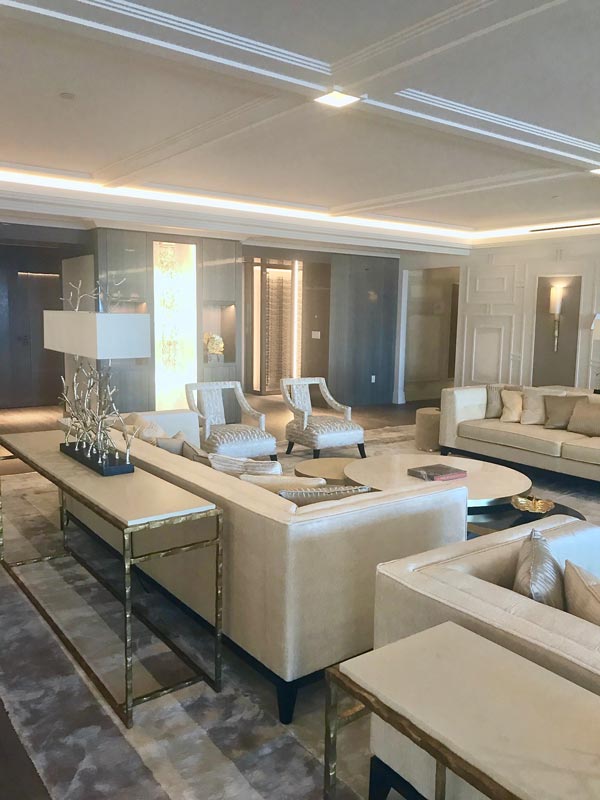
A exemple by Maison Rouveure Marquez
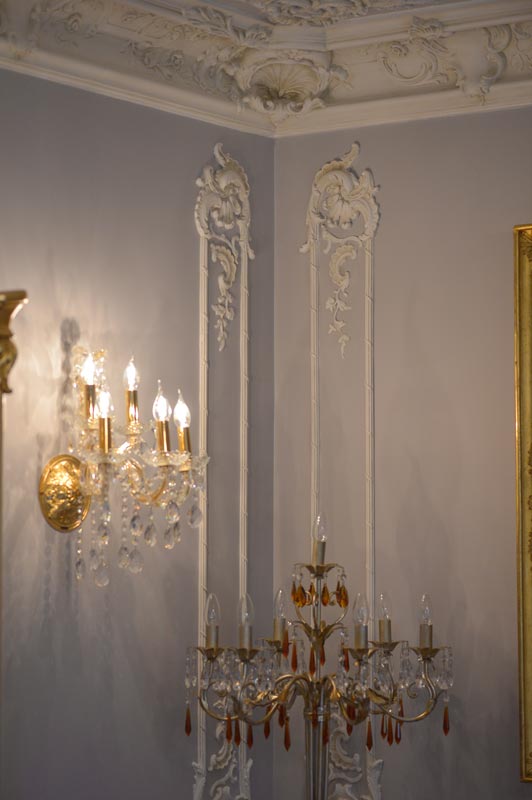
To adorn ceiling corners
Ceiling corners are often neglected in interior design, even though it is perfectly possible to bedeck them with ornamentation. Mouldings let you create continuity between cornices and ceilings. This allows them to accentuate the space in the room and the height of its ceilings. Moulding motifs can also echo the motifs decorating hanging lights and wall frames.
An example by Maison Rouveure Marquez
To accompany stairs
Staircases are considered to be the centrepiece of a home, so it is important to think about how they are decorated. Installed in manor houses in days gone by, wainscoting is making a comeback in interior design. It adds character to a stairway whilst creating a sense of space there. Wainscoting can be used to accompany the movement of the staircase and provide texture.
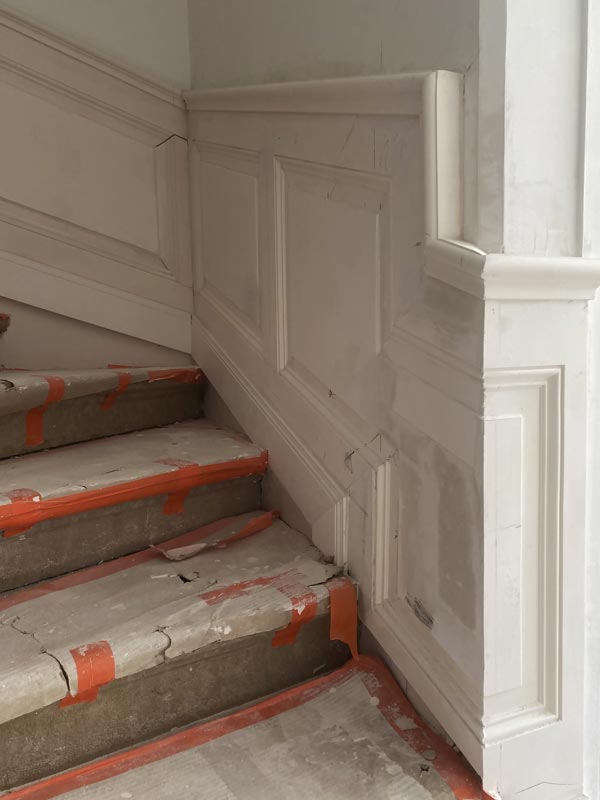
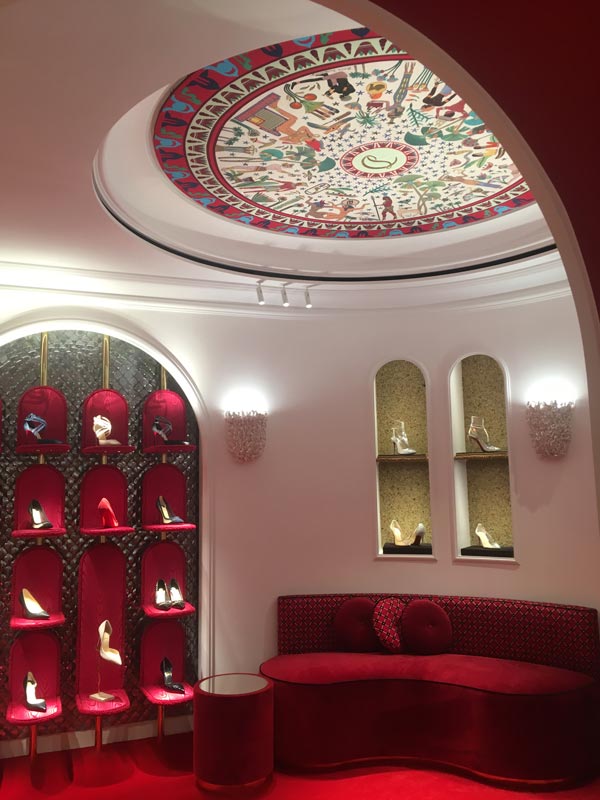
To create wall niches
Thanks to their texture, mouldings can enhance flat surfaces and play with perspective. When used to outline wall niches, they accentuate those openings in the wall as well as the decorative objects that they hold. Simple motifs can also help provide structure for decorations and add a touch of refined understatement to a room.
A example by Maison Rouveure Marquez
Finishes: Decorating fibrous plaster moldings with Begon Deco
Our ornamental plasterers have collaborated with the decorator and painter behind Begon Deco on multiple occasions to further beautify our fibrous plaster creations. The combination of these two applied arts makes it possible to manufacture extraordinary mouldings for singular projects that are reflections of the places they inhabit.
To read also
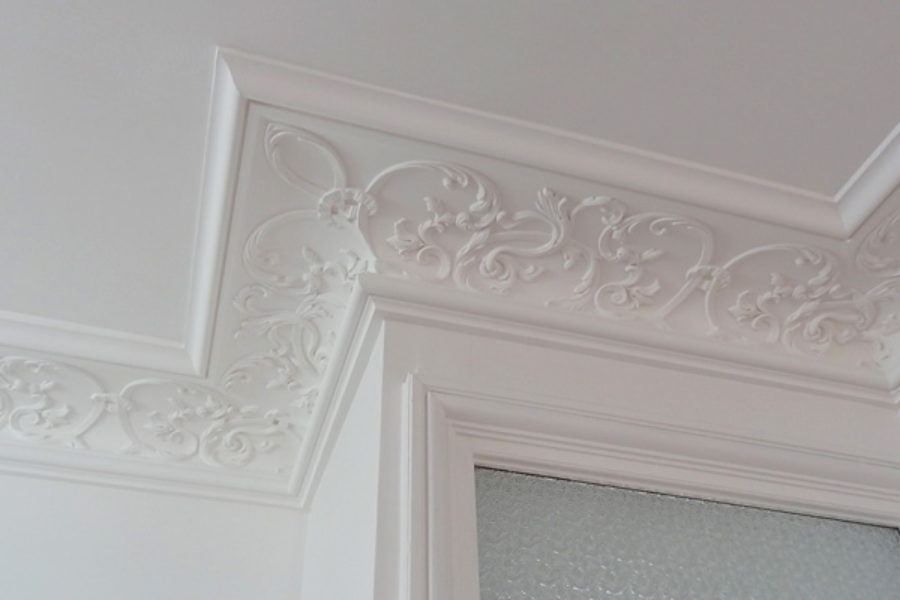
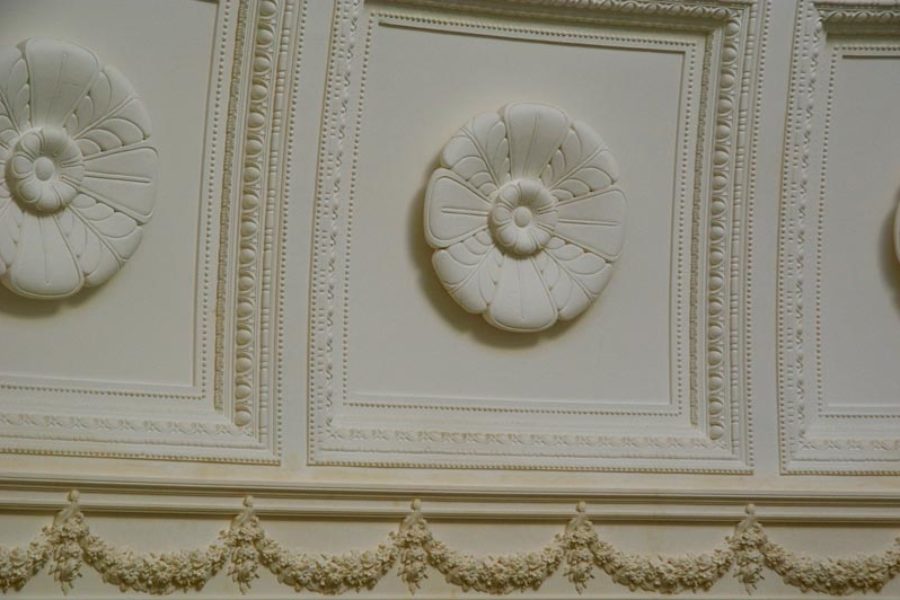
More information


